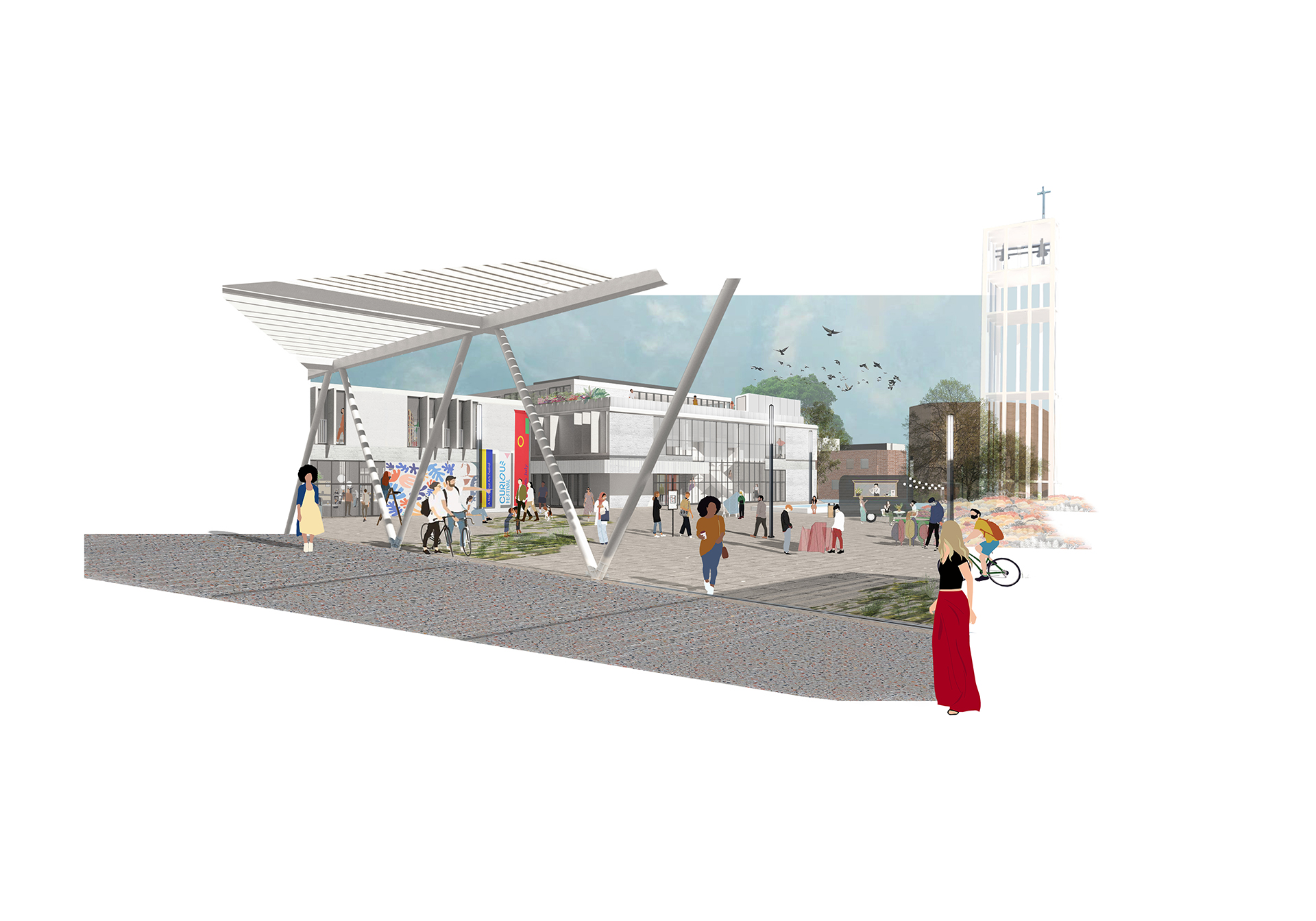Pelagia Spyridonidou
Heritage and Architecture
The shopping mall as an urban catalyst: The case of Leyweg Winkelcentrum
Dutch post-war shopping centres -initially perceived as ‘the heart of the city’- face increasing vacancy rates and gradual dereliction due to changing societal and shopping patterns. In this context, the demand for their redevelopment and reintegration is rendered urgent. Hence, the project explores their potential futures through the re-establishment of Leyweg Winkelcentrum as a ‘skill city’: an urban structure where crafting, learning and co-living are intertwined.
The shopping centre is transformed into a community core emphasising craftsmanship and the exchange of knowledge and culture, restoring its latent identity as the heart of the city while empowering the lower social strata of the area. To do so, following the ‘research by design’ methodology, shopping centres were spatially investigated under the scope of urban adaptability, while incorporating the notion of continuity in the sense of embedded heritage values. This resulted in a framework to assist the redesign on multiple scales.
Overall, the project rather than a final product serves as an empirical test, validating the hypothesis that heritage resources can act as resilient catalysts, accelerating urban processes when managed with the proposed situated design methodology, and reconciling the concepts of urban adaptability and continuity.
